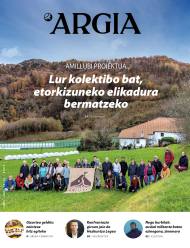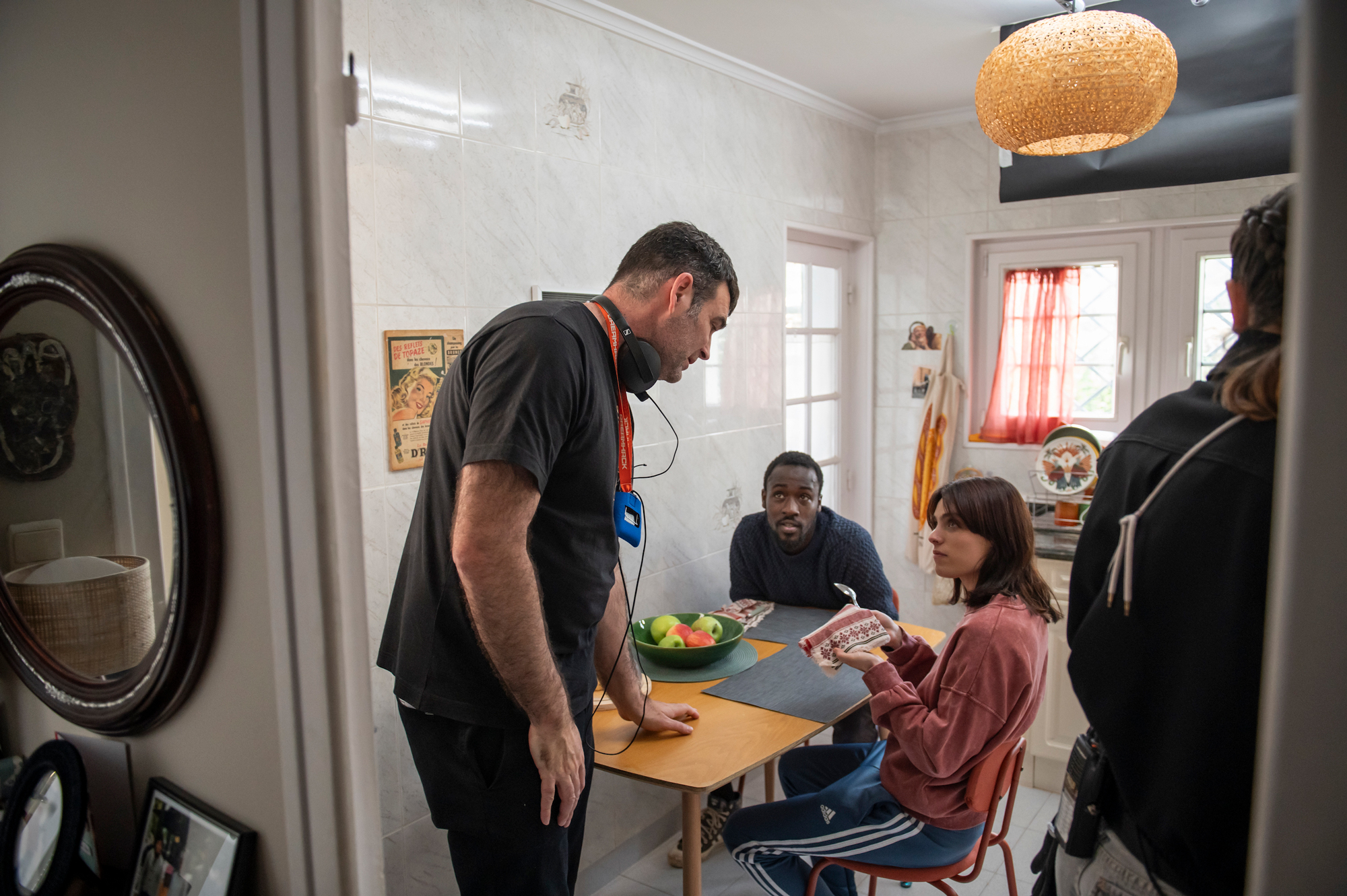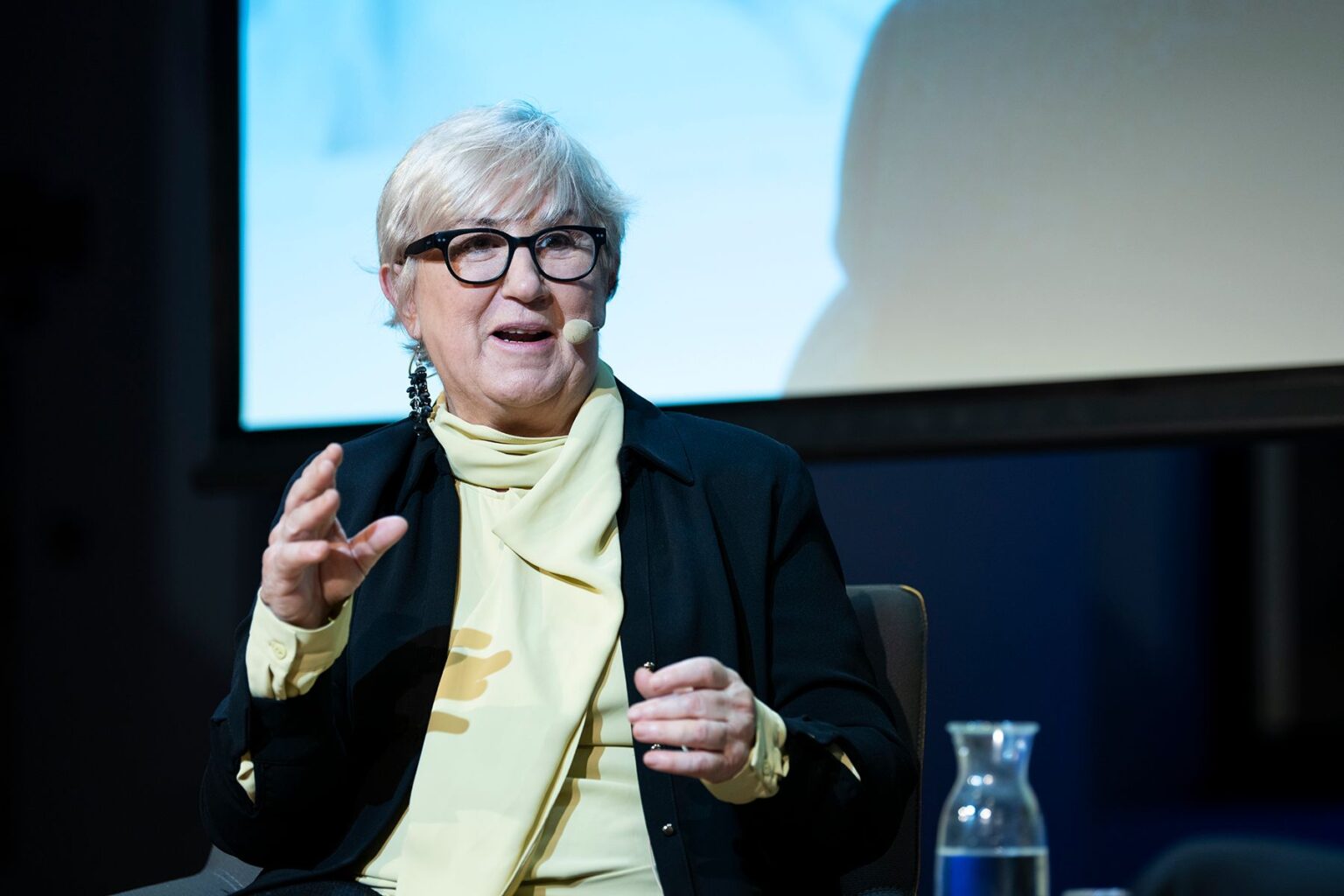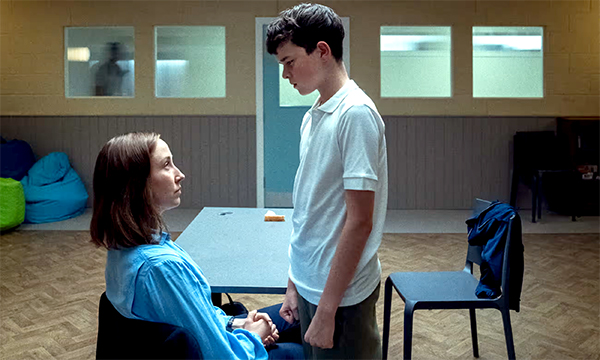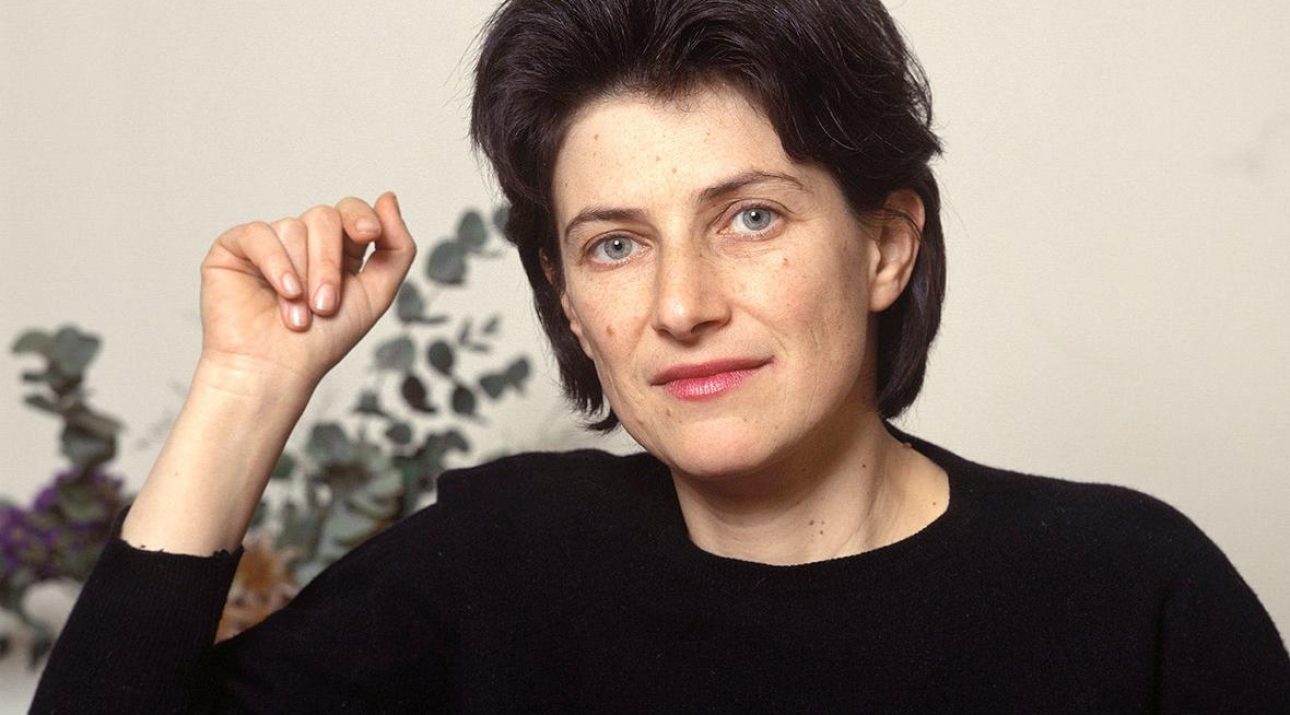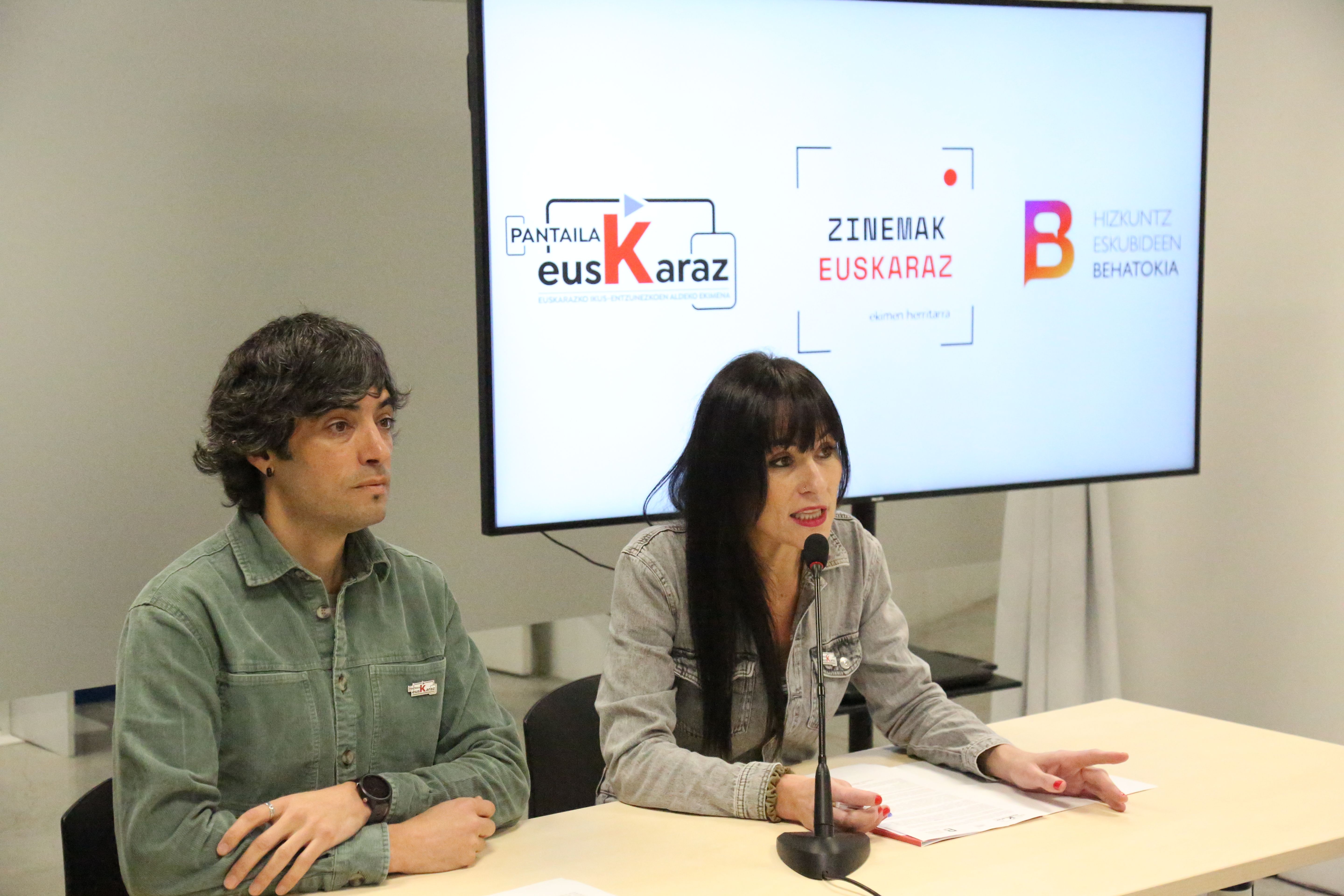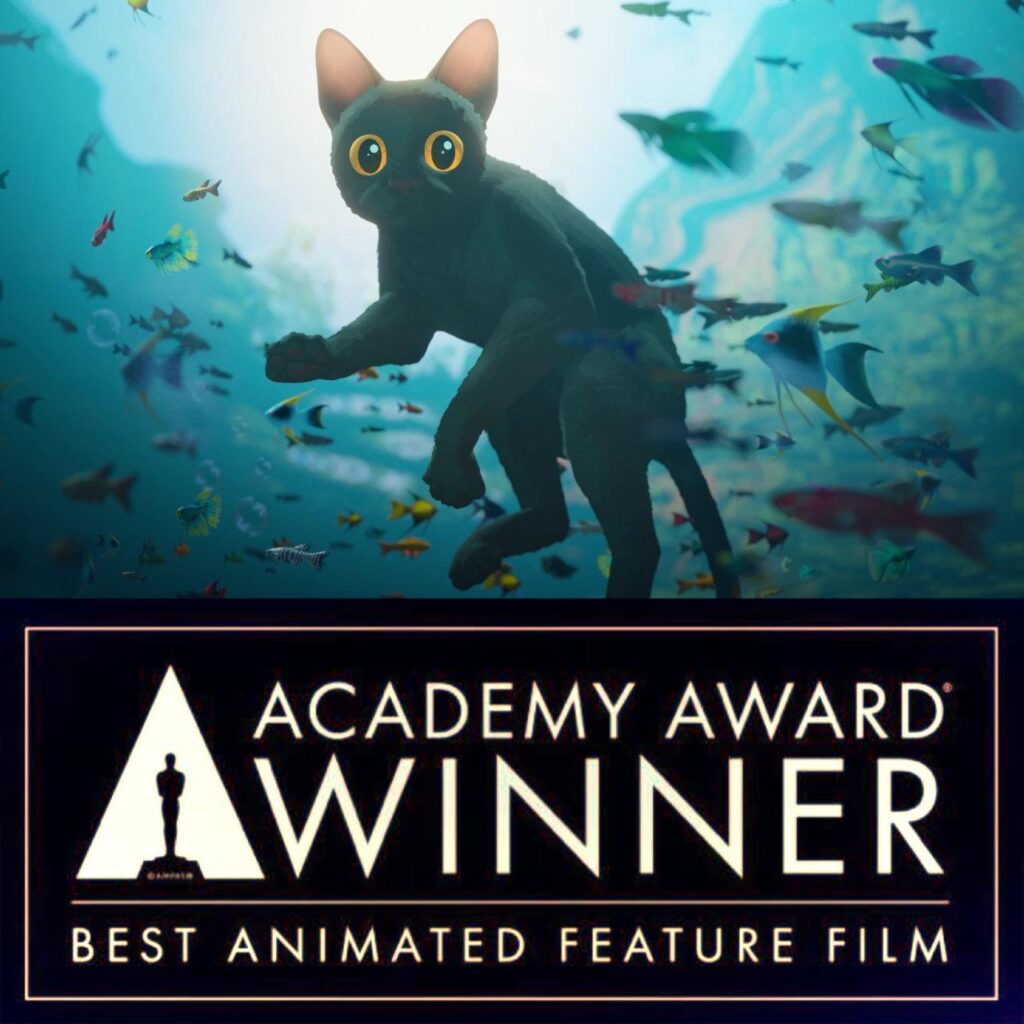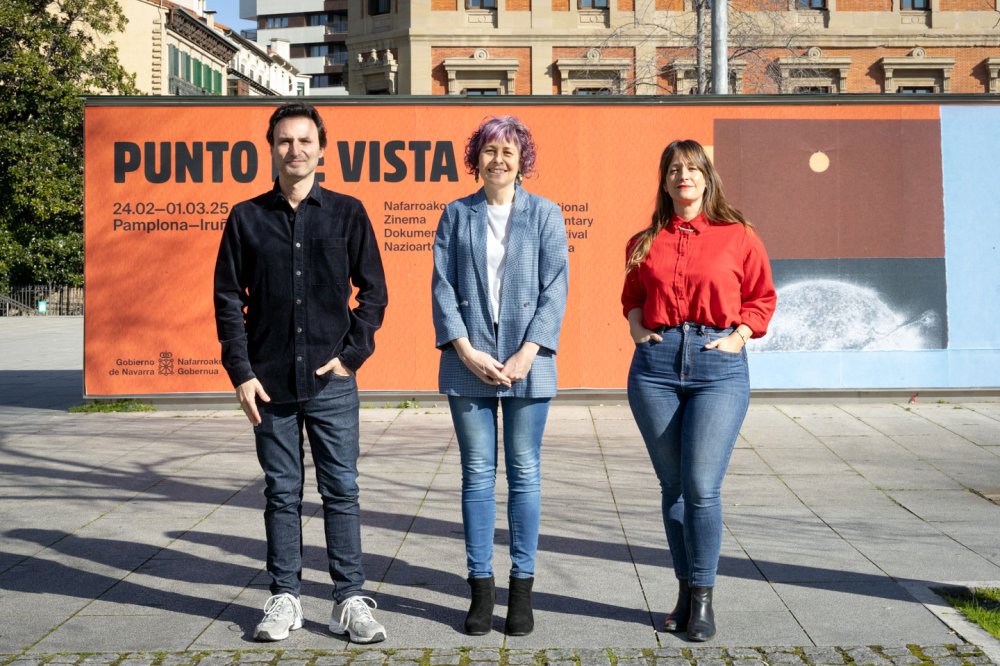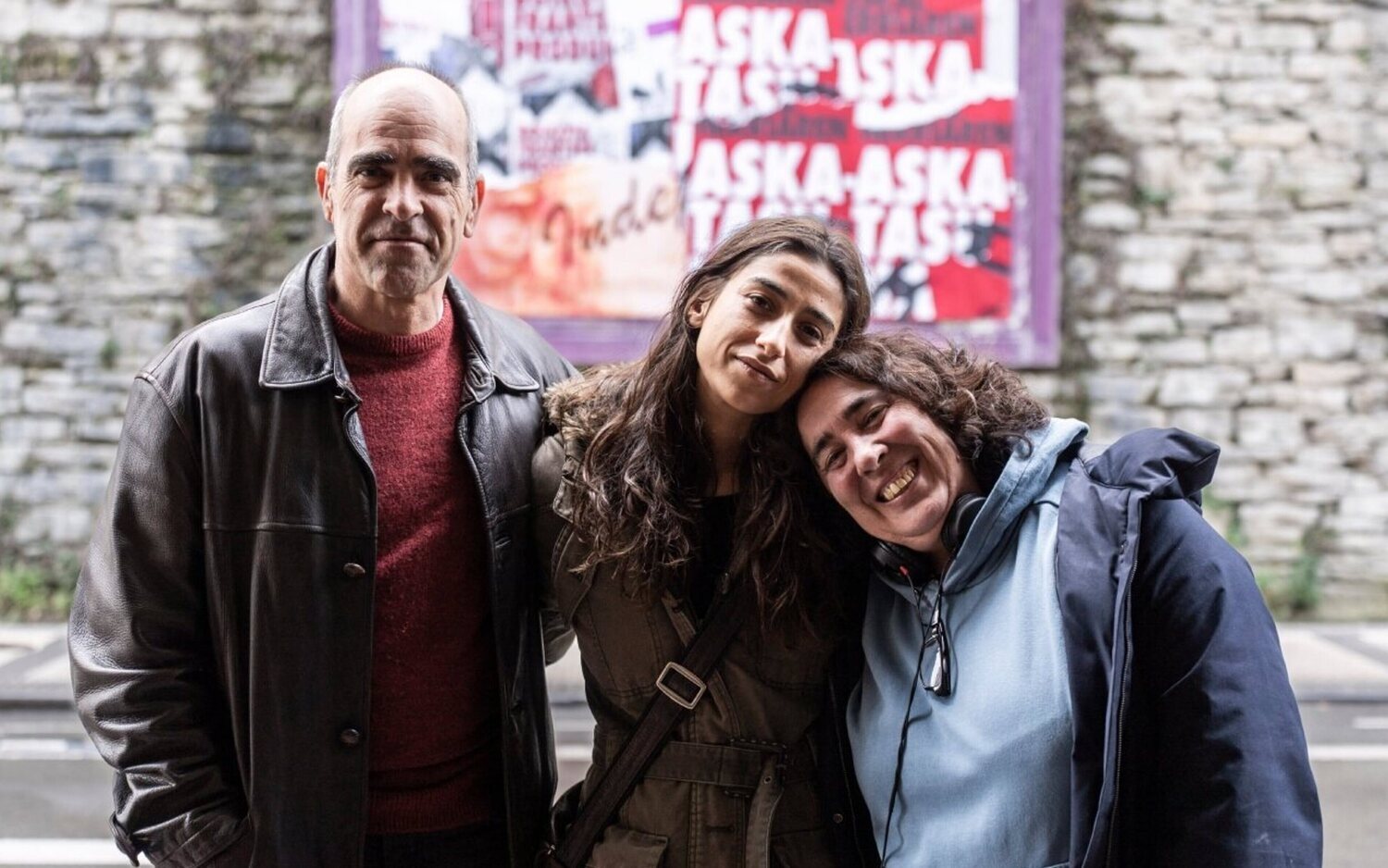"If the Basque conflict has conditioned our nature, how can we not deal with the issue?"
- It is not usual to imagine in film the concern of a Basque militant fleeing. As usual, putting the citizens of Zubieta as actors to complete a film. Less so, there are four names under the category of director. The collective Negu has completed the film Winters nearby with silences of meaning, but Mikel Ibarguren and Ekain Albite know how to put words into everything they have lived doing that.
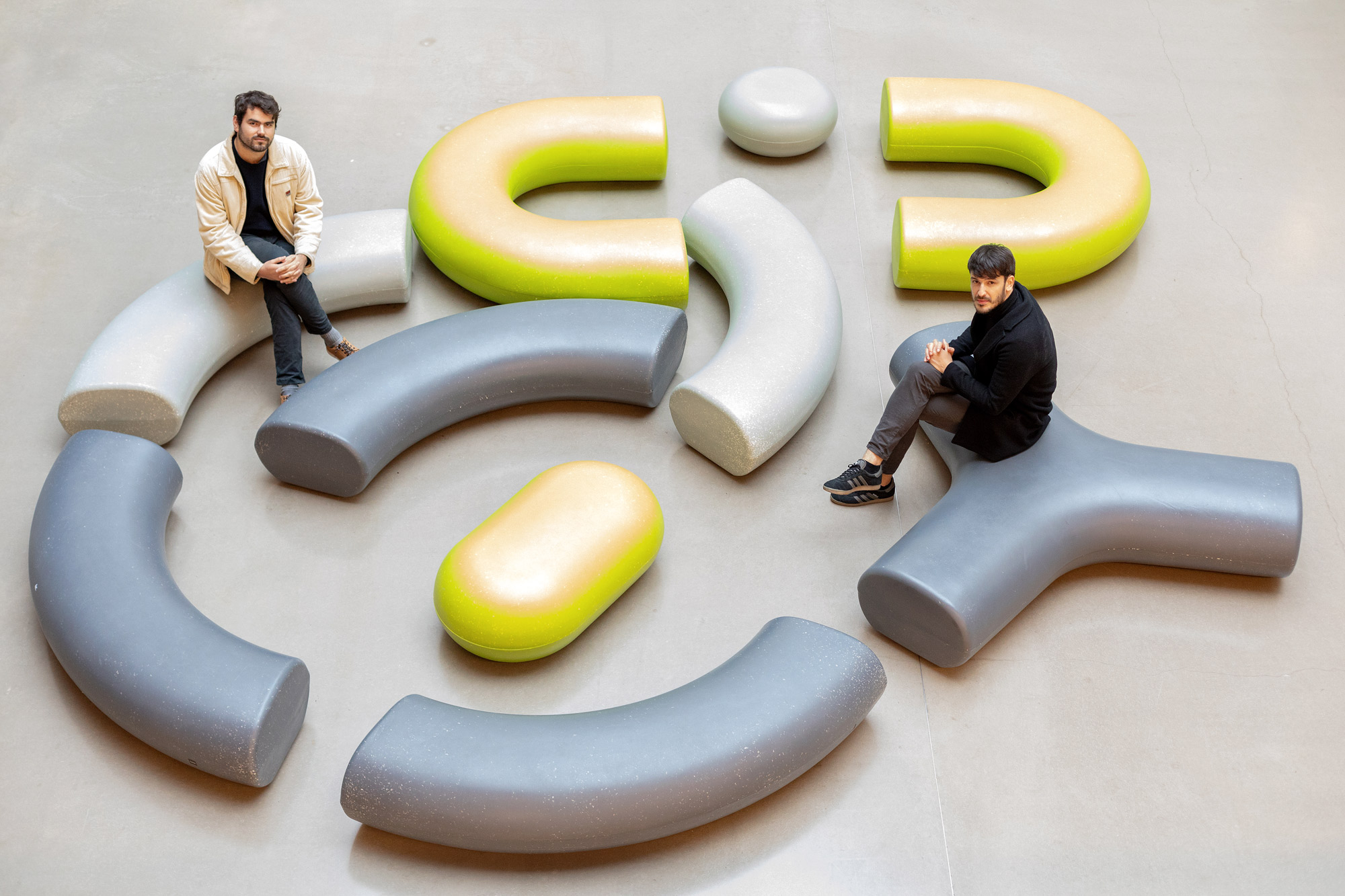
What started to be a short film is a feature film that is moving internationally. What has happened along the way?
June Albite: He was born as an end-of-grade short film at the ESCAC film school in Barcelona, but we found that there was more than a short film and that we had to face the respect that he gave us a long time. The school didn't allow a feature film, but we got them to give us back the rights to continue as we wanted. Then the producers entered and with the money advanced by them we were able to make a second recording. In just six months, the student film became a professional film.
You have found paths to do something that, if not, is very difficult: to be young and without a lot of filmography, to produce a feature film.
Mikel Ibarguren: Yes. If the film were not part of the ESCAC excuse, we would face many more limitations. The most money has been invested in material, as we have recorded it in 16mm and analog, and we did it with ESCAC money. However, a group of ten people has been very involved, day and night, not just looking at money.
A.R. : In the management category we find four names, because we are the four who have experienced the whole process, but in total there has been a team of about ten people with us in Zubieta for almost two years. Many of them have made the director's decisions in a more classic process. It is the film that a group of friends, following a certain determination, has made next winter. And, of course, we have been able to do so thanks to those who protect us and the reception of the citizens of Zubieta.
.jpg)
How much aesthetic does the decision to do it in 16 mm? Is there a way to do it?
A.R. : Engraving in 16mm is, first of all, an aesthetic choice. We try to rationalize and justify aesthetics, but it's not necessary. It had a function: it limited us a stack. We could record each scene twice at most and create a very special atmosphere of that awareness. What happened since we said “Ekin” until we ran it was very tragic, and that kept the team alert, connected with the moment.
From the foreground to the end, the people of Zubieta are very present. Why Zubieta and not another people?
A.R. : None of us had personal ties with Zubieta. We wanted to find that Bucolic and romantic Basque Country. We went looking around the border, but we got to Zubieta one day and we saw that it was completely isolated, more than the neighboring villages. We found it very interesting to also look at everything that that generates.
M.I. But Ekain tells the real story. Who opened the way? Your brothers.
A.R. : [Laugh] Yeah, that's also true. We didn't know anybody in the village, and we needed someone to contact. My brother is a veterinarian and knows the camp very well. I asked him and he had a contact with us, Doneztebe's, but he knew Zubieta well. We stayed with her and when she arrived, suddenly, she came from her sister. I knew Zubieta from the top down and he quickly opened all the doors. On the first day we were drinking cider with some of those who appeared in the film. As it was Covid-19 time, we were the only novelty in the village, and we were all welcomed. We have made a very close relationship. What would be a mere stage has become an essential element of the film. Both Zubieta and the bridges.
M.I. : From Navarra Film Comissiona we were told clearly that in order not to go to Zubieta it was impossible to record there. But the film's journey in the village has been enormous. We come up with some narrative intentions, and as we enter the village, we break all the papers, we build our aspirations to start again. We gradually got to know all the people and shaped them. The hardest thing has been that we have not been able to put everybody in the movie.

But they wanted to appear. It surprises… M.I.
: We told them we were going to make a film, but since it has been a three-year process, the film has always been a distant promise, which was in the air. We were with them drinking coffee, eating, drinking pacharán…. But there came a time when we had to go home remembering that we were actually going to make the movie, that is, they appeared. Beñardo, for example, who acts as a pastor in the second part, was a special person, because his experiences are related to what the film tells. And Beñardo was the one who had the most doubts. Gradually we created a comfortable place, until it was animated.
June Albite: "Recording in 16mm, beyond an aesthetic choice, is an indicator of a function: it limited a stack"
A.R. : Faced with all anthropological norms, we have been part of that community and we have wanted to give them what they have given us. It was very rare materially that some Catalans, a large part of the work team was Catalan, were with cameras in Zubieta. And yet, a very close connection has emerged among them.
Mikel, actor director, was you mainly. Except for Jone Laspiur, the other actors have not been professional. How have you worked with them?
A.R. : I very much respect the role of actor, but I think to be honest with this movie we couldn't do otherwise. Once you understand where the movie is, you can't grab that blind desire to capture your beliefs. Whether you're an actor or not, you have to be very open in a creation process. I would be angry with myself, seeing what the special situation we had was, had I not been able to reflect it.
M.I. : When the filmmaker understands that what happens in front of his eyes can be more interesting than what he thinks, a new world opens up to him. A lot of people want to do exactly what they've represented on paper, but we saw that what was happening could be much more complex and interesting, and then we had to take it to us, with camera and assembly. One example: suddenly, Anita, one of the characters in the movie, says he'll call the neighbor and we decided to record it. From there we bring out the moment of Christ. We could give Anita a very closed script and some concrete instructions and I would. But that wouldn't be our movie. As soon as we started recording, we learned that we couldn't do something too fictionalized.

Can you say that Jone Laspiur, partly across the screen, has been his side?
M.I. Totally. We were clear that we wanted Jone Laspiur to be part of the process. And not only that, but someone we needed from within who could lead and help others. An ally to pull in the direction we needed. I thought that at first I would have to do a very concrete job, but when I understood what her place was, I would go to Zubieta but not to rehearse, but to meet people, but very carefully, without making her too friend… When I understood her, she went completely into the process. Of course, the analog has that, nobody could know, until the development, what was going to come out. But I knew that he was doing very well, and in all the criticisms his good work has been underlined.
We have hidden the issue so far, but Negu is a film that wants to share one or more faces of the Basque conflict. Starring a fugitive and his host network.
M.I. Yes. In recent years, we felt the need and desire to do something beyond fictional stories. What has been done so far has been done with a morbid and epic look, from a logical idealization or hatred. We start from another place. As we have done a long job in Zubieta, we have carried out another long process of documentation with the limiters, with the people who have fled, etc. It could be a very action-packed movie, but what we've been told hasn't been that. We have been told the mines of waiting and silence, and that is what we have brought to the film. This has been instrumental in building the character of Laspiur, but also in deciding the tone and energy of the film.
However, very little is said about the escape of the protagonist. Why have you chosen that ambiguity?
A.R. : The film is very political and ideological, but we have tried to move away from politicization. We have lived through the end of the armed conflict, and although this film is very present in 2011, there is a 2023 film. We look at the remaining clues. Where are those people? How are people who have experienced the conflict on their skin? There is a lot of silence, and we wanted to give a place to that silence. Focusing on the wounds of these people is what gives the film political character.
M.I. : Sometimes we try to photograph the whole mountain. We wanted to look at a small part of this more general photograph and then complete a puzzle with ideological and artistic options. It's been a changing process, because we wanted to build the film according to what they told us. That’s why you don’t define who Jone is, what he has done… Everyone will make their own interpretation, but for us that indefinite character serves to replace everything they have told us. If we try to tell in a very narrative and explicit way, we could also fall into epic. And we didn't want that.
It draws attention to the paradox that this film that focuses on silences explains why there is no talk about it.
A.R. Of course, that silence is very real. It's not a poetic license. Someone told us, for example, that the time he cooked with the owner of the house was very special for him, that outside of it he had hardly any contact with anyone. Their explanation is that you couldn't give too much information, you couldn't even create a relationship that was too close, because you could be dangerous or you didn't know if you would see it again. It is very difficult to build a relationship from this situation, but at the same time, with these limitations, if there is a need to express affection or affection, to communicate it.

When we depict the fugitive figure, we probably used to place the male face. You have taken another path.
M.I. : We haven't thought too much. In the process there has been a person who has marked us in this documentary work and who is a woman. And then the beginning, somehow. That is why we have not had too many doubts.
A.R. : This interview conditioned us a lot. We were awakened by the desire to tell their lives. No matter how naturally you decide, there's a way to say that: that the image of the fugitive is not what we can think. And it's true that this changes the movie a lot. That deep well that emerges in those silences, if the fugitive were man, would be different.
Mikel Ibarguren: "When the filmmaker understands that what happens in front of his eyes is more interesting than he thinks, a new world opens up to him."
We have the ability to memorize the gaps left by the film, but the film is touring international festivals. Have viewers understood that?
M.I. : We were worried because the film is made in a certain way, and the topic of speech is everything. In some countries they know little about the Basque conflict, but still find universal elements. There are still people escaping scientifically in countries. The film speaks of this, of fear of failure, of discomfort, of waiting…
A.R. : At the Locarno Festival (Switzerland), for example, without prejudice, the film was more delivered. They've had the ability to read some layers that we hadn't consciously detected. They deepen because they are not conditioned by one or another attitude towards a story. That was very beautiful. In Valladolid the talk started at 12 p.m., but there were 30 people who wanted to ask and receive answers. They also asked us why we chose this issue. Conflict has conditioned part of our life and personality. How could we not deal with this issue?
M.I. : In Spain and Euskal Herria we are all conditioned by the information provided by the synopsis. Sometimes he leaves and others against him, but there's a limit to watching the movie. That is why we have tried to leave its place to creation and cinema.
.jpg)
A.R. : The viewer must decide whether to be part of the film he wants or not. If you don’t want to be part of it, it will be slow, boring, monotonous… But if you enter it, the reading changes radically. The film has many gaps to fill, but they're not forced or a simple narrative trap. These gaps have meaning.
Work doesn't look like commercial films. Soon, in 2024, he'll be in the movie theaters.
M.I. : In the process we suddenly realized that our film overcame a student project and that we could try to move at festivals around the world. The welcome has been good and the consequence is all that has come after. Fortunately, there are many rooms that offer more alternative programming. We've had a lot of people wanting to program Winters nearby. This film did not come about at all with the intention of being in the cinemas, but once arrived, our intention is to be able to show it throughout the Basque Country and at least in the Spanish capitals.
No other land dokumentalaren zuzendari Hamdan Ballal kolono sionistek jipoitu zuten astelehenean bere herrian, beste hainbat palestinarrekin batera, eta Israelgo militarrek eraman zuten atxilo ondoren. Astarte goizean askatu dute.
Donostiako Tabakaleran, beste urte batez, hitza eta irudia elkar nahasi eta lotu dituzte Zinea eta literatura jardunaldietan. Aurten, Chantal Akerman zinegile belgikarraren obra izan dute aztergai; haren film bana hautatu eta aztertu dute Itxaro Bordak, Karmele Jaiok eta Danele... [+]
35 film aurkeztu dira lehiaketara eta zortzi aukeratu dituzte ikusgai egoteko Euskal Herriko 51 udalerritan. Euskarazko lanak egiten dituzten sortzaileak eta haiek ekoitzitako film laburrak ezagutaraztea da helburua. Taupa mugimenduak antolatzen du ekimena.
Pantailak Euskarazek eta Hizkuntz Eskubideen Behatokiak aurkeztu dituzte datu "kezkagarriak". Euskaraz eskaini diren estreinaldi kopurua ez dela %1,6ra iritsi ondorioztatu dute. Erakunde publikoei eskatu diete "herritar guztien hizkuntza eskubideak" zinemetan ere... [+]
Geroz eta ekoizpen gehiagok baliatzen dituzte teknologia berriak, izan plano orokor eta jendetsuak figurante bidez egitea aurrezteko, izan efektu bereziak are azkarrago egiteko. Azken urtean, dena den, Euskal Herriko zine-aretoak gehien bete dituztenetako bi pelikulek adimen... [+]
Otsailaren 24tik eta martxoaren 1era bitartean, astebetez 60 lan proiektatuko dituzte Punto de Vista zinema dokumentalaren jaialdian. Hamar film luze eta zazpi labur lehiatuko dira Sail Ofizialean; tartean mundu mailako lau estreinaldi eta Maddi Barber eta Marina Lameiro... [+]
A conference for architects has just been held in Madrid to discuss the crisis of the professional architect. They have distinguished the traditional and contemporary way of being an architect. What is traditional? From the epic architect who appears in The Brutalist, where... [+]









